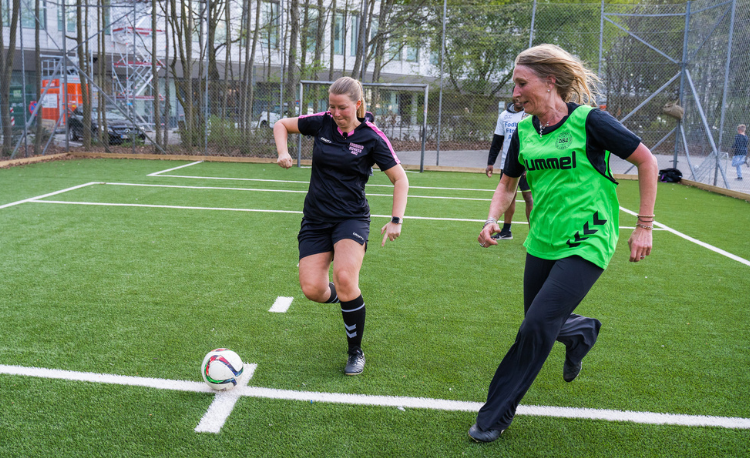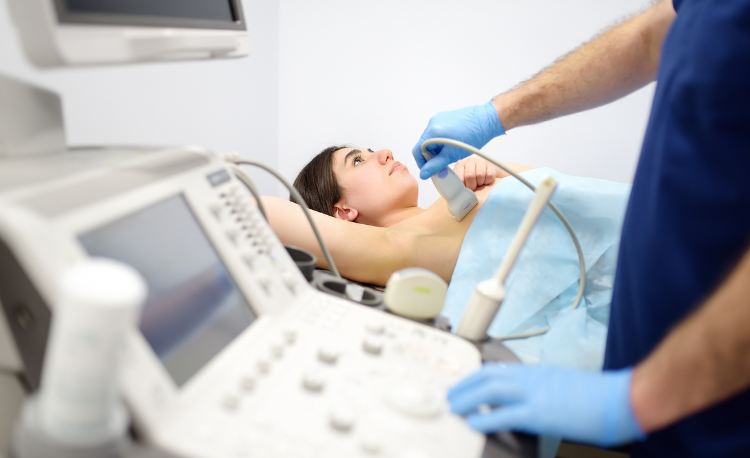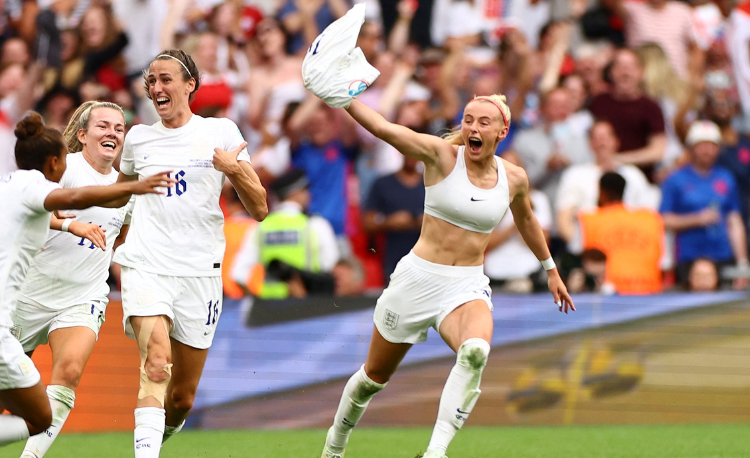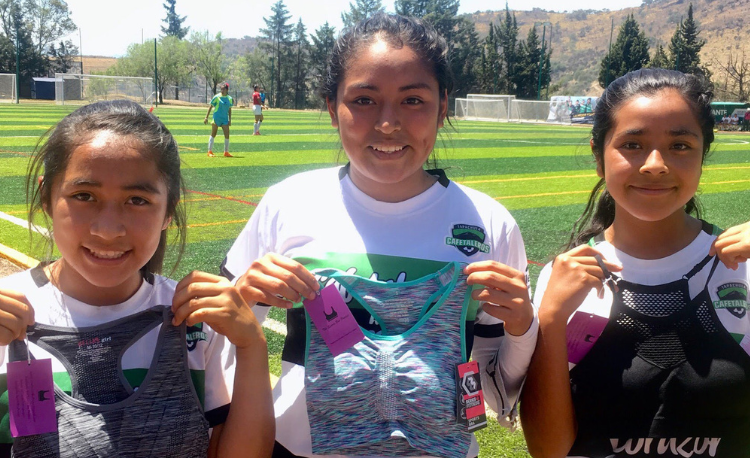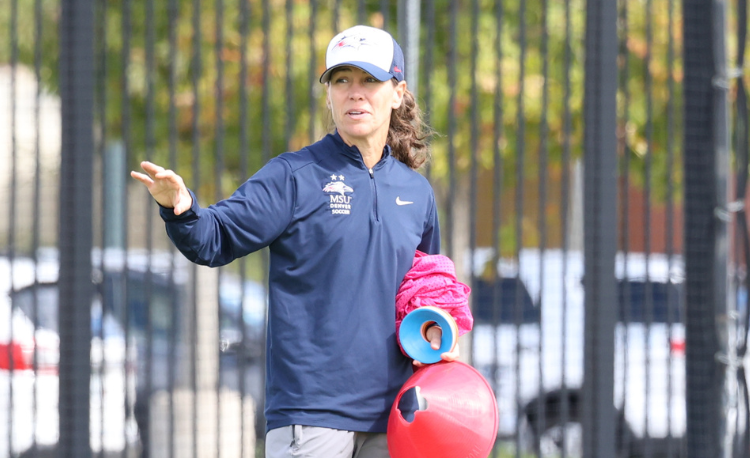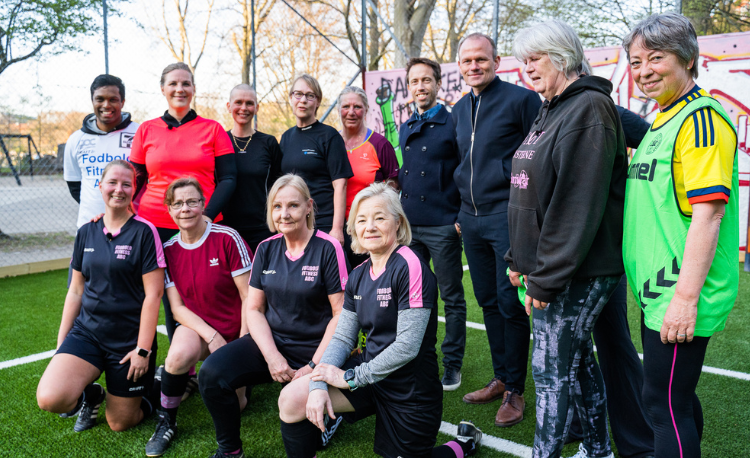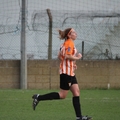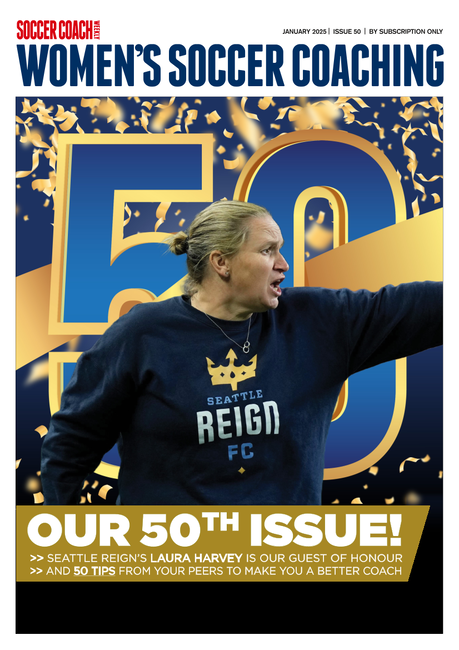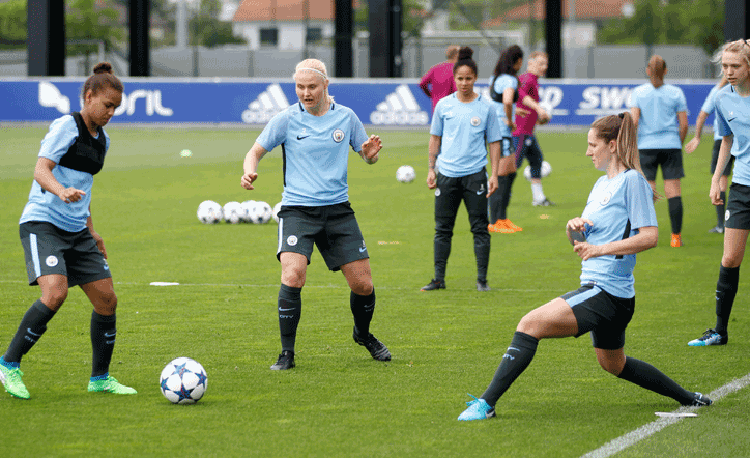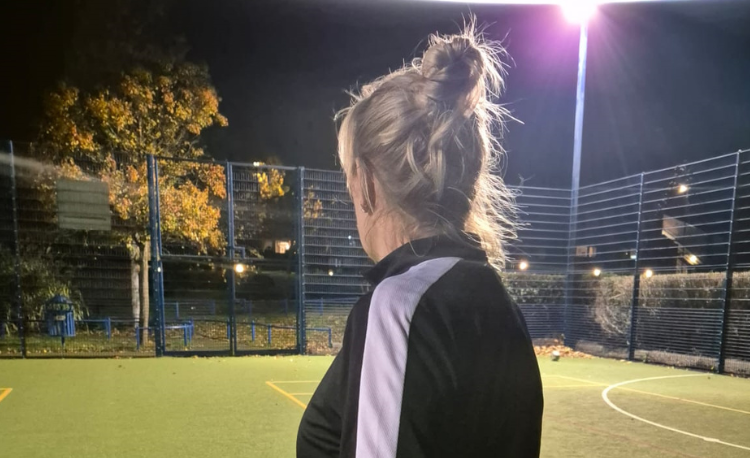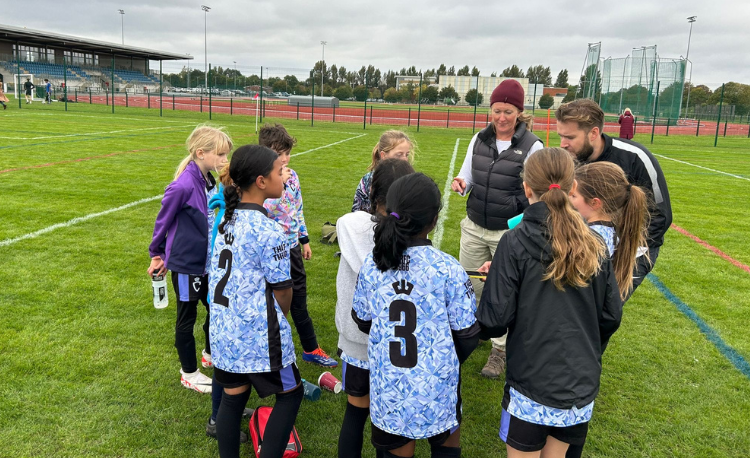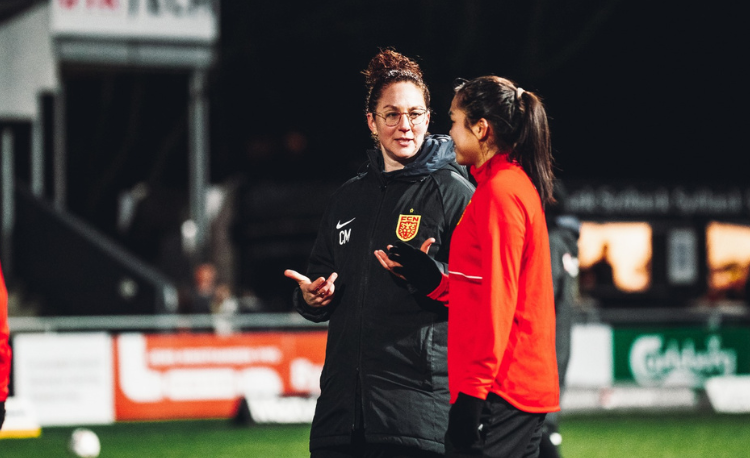You are viewing
1 of your 3 free articles
The Football Fitness After Breast Cancer initiative
A soccer initiative in Denmark has helped dozens of women in their recovery from physical and psychological side effects of treatment. Hannah Duncan finds out more.
For women recovering from breast cancer, regular exercise has been proven to provide both physical and mental benefits.
This is particularly true if the activity offers participants the chance to meet with others going through a similar experience, generating a sense of community and a support network.
In Denmark, the Football Fitness After Breast Cancer initiative has produced some strong evidence to further support this notion.
Hannah Duncan speaks with one of the programme’s founders, Professor Peter Krustrup, to find out more...
WSC: Tell us a bit about the Football Fitness After Breast Cancer initiative...
PK: The Football Fitness After Breast Cancer initiative started as a research project in 2017, with Jacob Uth, PhD, from University of Copenhagen and Professor Peter Krustrup from University of Southern Denmark as principal investigators.
It was founded on a decade of research, highlighting the mental and physical benefits of recreational football for untrained adults and specific patient populations, including women with elevated blood pressure (Football for the Heart) and men undergoing treatment for prostate cancer (FC Prostate).
Prior studies provided evidence that football training could help reduce fat mass, lower blood pressure, and enhance bone and muscle strength, all while providing an enjoyable experience and fostering social connections through peer support.
Breast cancer treatment can lead to various side effects, including weight gain, fatigue, and increased bone fragility. Therefore, we aimed to explore whether football training could help alleviate some of these issues.
WSC: Who is the programme specifically aimed at and how have you gone about reaching these people?
PK: The initiative targeted women who had undergone various treatments for breast cancer, including surgery, radiation, chemotherapy, and hormonal therapy.
Information about the programme was shared by their treating oncologists and nurses, as well as through social media channels managed by the Danish Cancer Society, and coverage from national news outlets.
WSC: What does the programme involve for the participants?
PK: It involved two weekly, one-hour training sessions, combining thorough warm-up, skills training, and three or four small-sided football matches, lasting seven minutes each, with three-minute breaks in between them.
The participants could look forward to a full-body workout, intense exercise, friendly competition, and plenty of smiles and laughter.
WSC: Why is it so important to have this programme available for people recovering from breast cancer?
PK: International guidelines recommend that cancer survivors engage in regular exercise to rebuild strength and fitness, alleviate fatigue, and reduce the risk of recurrence.
The Football Fitness After Breast Cancer programme targets women seeking to participate in vigorous, mostly outdoors, exercise, within a friendly and playful environment.
WSC: How many women have been involved so far?
PK: A total of 68 women, aged between 23 and 74, took part in the research project, and several continued playing at a local club after its completion.
As a result of the initiative, approximately 10 new players have joined the Football After Breast Cancer programme at the club.
We are currently applying for funding to upscale the programme with a nationwide implementation, as we have done for the Football Fitness programme for all women aged 18-90, and the FC Prostate programme.
WSC: How has the programme impacted the participants? What has the feedback been like?
PK: The study found that participants in the football group had improved their muscle strength and balance, as well as their bone strength.
Furthermore, a reduction in participants’ physical limitations was reported after six months.
The positive impact on bone health is considered an important finding, as bone health is a significant focus area for the target group.
An interview study among the women who continued playing in a local club revealed that they felt part of a meaningful and supportive community. Football became a part of their identity, and led to the adoption of a healthy lifestyle.
We have created a Football is Medicine model that can serve as inspiration.
We think it is important to use evidence-based concepts, so the warm-up, drills and football activities are effective and combine the three training types – endurance training, high-intensity interval training (HIIT) and strength training.
At the same time, it is very important to create an inclusive and motivational training environment, making the football activity fun, social, healthy and safe.
To ensure this is the case for all types of players – including untrained women with little sporting experience and skills, as well as training for various patient groups – we recommend training sessions, rather than games and competition.
In 2010, we had enough evidence to conclude that football training is an effective, broad spectrum prevention of non-communicable diseases, and then, in 2018, we had enough evidence to conclude that recreational football training is medicine.
On that basis, we established the Football is Medicine platform, which is an international scientific platform, disseminating research results, evidence-based concepts and shared experience about best-practice implementation.
On January 14-16, 2025, we will go to Jyväskula in Finland, for the seventh annual Football is Medicine conference.
case study
Related Files
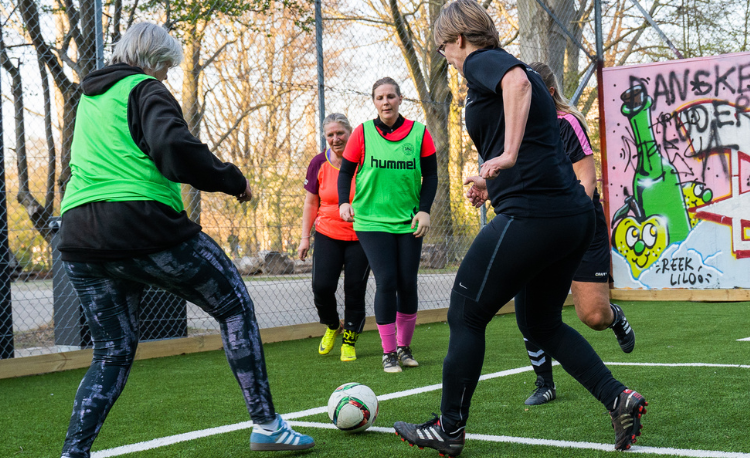
After an intense cancer journey, soccer is helping Anna Ross Agner to find herself and a community where everyone has a scar and a tale to tell.
Like most footballers, 50-year-old Anna Ross Agner meets up with her team-mates every week to train.
And just like any other team, they practice feints, passing and various kinds of dribbling with the ball.
And, yet, their team is not like everyone else’s – because Anna has had breast cancer, and so have the other players.
This creates a special sense of community among her team-mates that Anna has never encountered anywhere else.
“It’s just really great to come and share things that others can’t really relate to. It’s only natural for me to want to show someone my scar and tell my story, and vice versa,” she said.
Rediscovering control
It is almost a decade since Anna discovered a lump in her breast. Just a few days later, she was under the knife to have it removed.
But, although everything went according to plan, and she was declared cancer-free shortly after surgery, the process had a major impact on her.
“It was absolutely awful," she said. "You relinquish control and let others make decisions about your body and just go with the flow."
Exercise was not a big part of Anna’s life before her diagnosis. But this changed after surgery, when she was offered a rehabilitation programme through the hospital that focused on exercise.
She later found out about the opportunity to join Football Fitness After Breast Cancer – and her active life made a big difference.
"It meant I could take control of my own body again. I learned I could keep myself up even when pushed down,” she said.
Better on the pitch
Today, Anna continues to play football with a number of players from the project, and enjoys feeling how she gets better every time she steps out on the pitch.
“That feeling of ‘I was really good today’ can really improve your quality of life,” she said.
Anna underwent surgery that kept her off the football field for three months. But she was right back on it just as soon as her body allowed her to play again.
“The training and the team spirit really cheer me up. It’s nice to feel like my body is capable of doing this, even though I might be a bit rusty after taking a break like this.
"I’m sure it’ll all come back to me.”
Newsletter Sign Up
Newsletter Sign Up
Discover the simple way to become a more effective, more successful soccer coach
In a recent survey 89% of subscribers said Women's Soccer Coaching makes them more confident, 91% said Women's Soccer Coaching makes them a more effective coach and 93% said Women's Soccer Coaching makes them more inspired.
*includes 3 coaching manuals
Get Inspired
All the latest techniques and approaches
Women's Soccer Coaching offers proven and easy to use soccer drills, coaching sessions, practice plans, small-sided games, warm-ups, training tips and advice.
We've been at the cutting edge of soccer coaching since we launched Soccer Coach Weekly in 2007, creating resources for the grassroots youth coach, following best practice from around the world and insights from the professional game.
